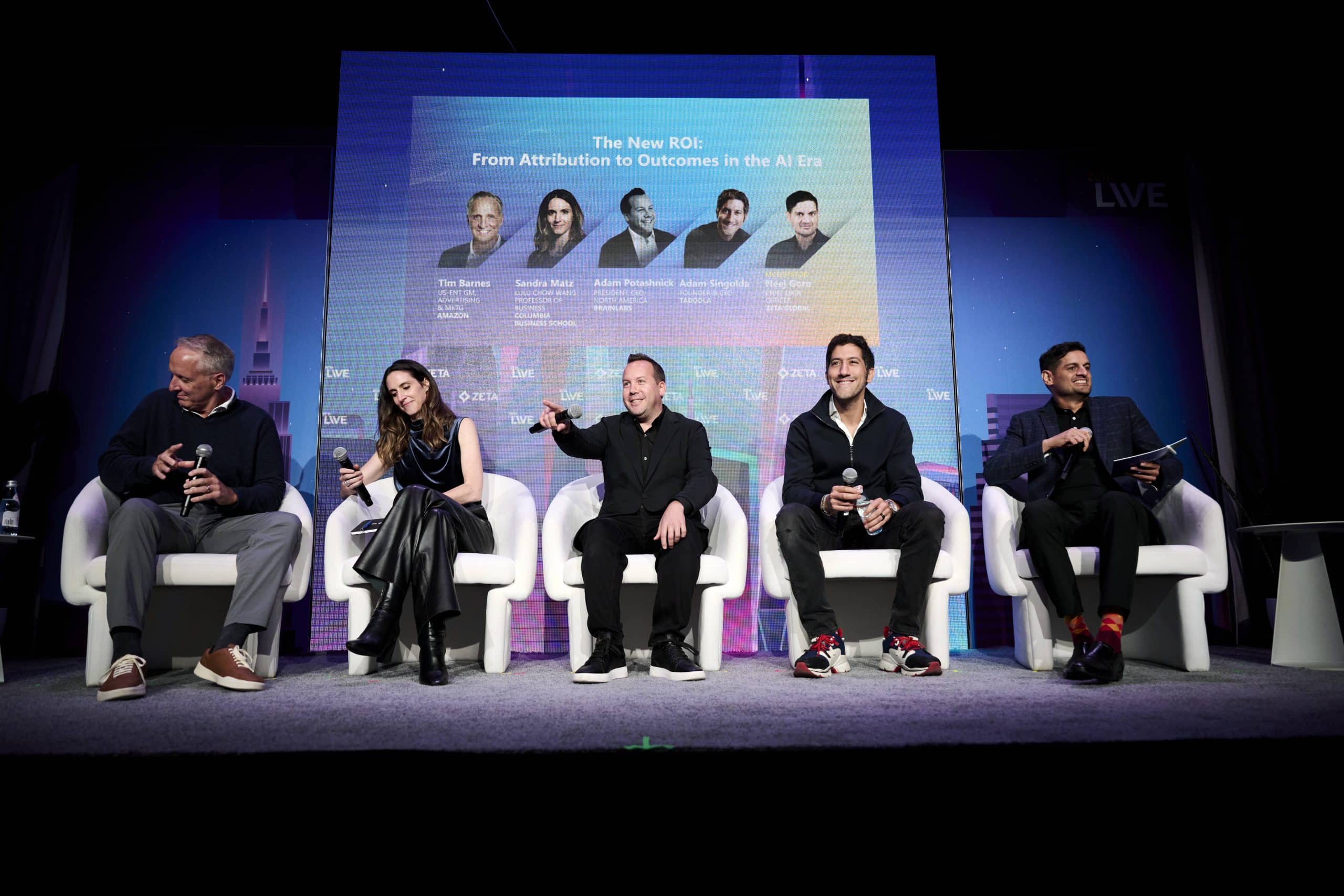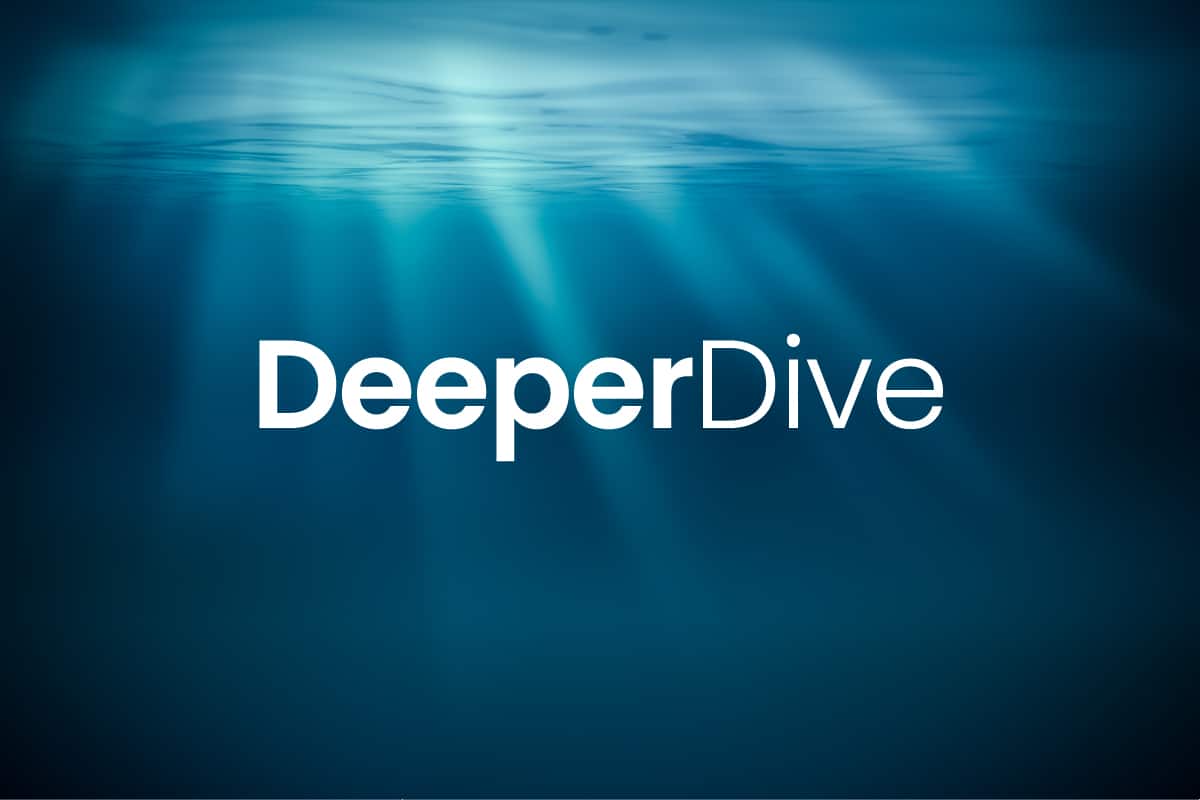In an AI-driven world, does attribution still matter?
Spoiler alert: it does—more than ever.
On Thursday, October 9th, Adam Singolda spoke at Zeta Live on a panel led by Neej Gore (Chief Data Officer, Zeta Global), featuring Tim Barnes (U.s.-ENT GM, Advertising and Marketing, Amazon), Sandra Matz (Lulu Chow Wang Professor Business, Columbia Business School), and Adam Potashnick (President and CEO, North America, Brainlabs), which dove into the evolving role of attribution in marketing, emphasizing the need for transparency, data-driven performance, and human-centered strategies in an AI-powered future.
Attribution in 2025: Still Relevant, Still Evolving
Adam Singolda framed the conversation powerfully. In uncertain times—pandemics, economic instability, geopolitical conflict—the first thing marketers cut is brand advertising. What stays? Performance marketing. Because in challenging times, businesses focus on what drives immediate growth.
“Performance advertising is the oxygen that drives sales,” said Singolda. “That’s why attribution is a big deal.”
But not all attribution is created equal. Singolda pointed out the fundamental divide in the ecosystem:
- Closed systems (Google, Meta, Amazon, Taboola) control the full journey from impression to conversion.
- Open systems or fragmented solutions require marketers to stitch together complex attribution models, often with less precision and transparency.
Taboola’s position, straddling both demand and supply sides, gives it an edge: “We focus on transparency,” Singolda emphasized. “If it doesn’t work, we want to tell you why—and fix it together.”
The Rise of the CFO: From Approver to Attribution Advocate
Adam Potashnick highlighted how attribution is increasingly a CFO-level concern. It’s not just about marketing performance—it’s about proving business value in hard numbers.
“The CFO isn’t the only stakeholder,” he noted, “but they’re essential to getting things over the line.”
To meet those expectations, agencies like BrainLabs are investing in custom attribution models tailored to each client’s KPIs. It’s not about one-size-fits-all. It’s about adaptability and rapid experimentation.
Consumer Trust and the Limits of Clicks
Dr. Sandra Matz brought the consumer lens to the conversation. Attribution models built on short-term metrics like clicks often miss the full picture—and risk boring consumers with repetitive, “safe” content.
“Over 40% of Gen Z have abandoned brands simply because they were bored,” she shared. “Clicks alone can’t tell you whether an experience was meh or mind-blowing.”
She emphasized that trust isn’t just about transparency, it’s about benevolence: Do consumers believe you’re using data in a way that benefits them?
When brands get that right, attribution isn’t just a business tool but it becomes a driver of relevance and loyalty.
AI: Hype, Hope, and Hard Truths
The panel was refreshingly honest about the role of AI. While many industry conversations lean heavily on AI as a silver bullet, Singolda cautioned against over-romanticizing it.
“AI is a commodity,” he said. “We can all download Llama or build a model. What differentiates winners from losers is unique access to data and distribution.”
He likened the overuse of “AI” to a fairy dying every time the term is misapplied. What actually matters? Having proprietary data and distribution that AI can use to deliver something competitors can’t replicate.
What’s Next: A More Human Future Powered by Smarter Tech
So, where is attribution heading?
Tim Barnes sees attribution becoming more automated, powered by tools like clean rooms and federated data models that respect privacy while enhancing insight. He also emphasized that creative—the human element—remains a critical factor in driving outcomes.
In closing, panelists were asked to predict the future of marketing in a world where attribution is truly effective. Their answers?
- Adam Singolda (Taboola): Human. Relationship. Trust.
- Adam Potashnick (BrainLabs): Adaptive.
- Sandra Matz (Columbia): Relational.
- Tim Barnes (AWS): Automated.
Neej Gore concluded with, “The future of marketing is more human… and ironically, it’s because of AI.”



